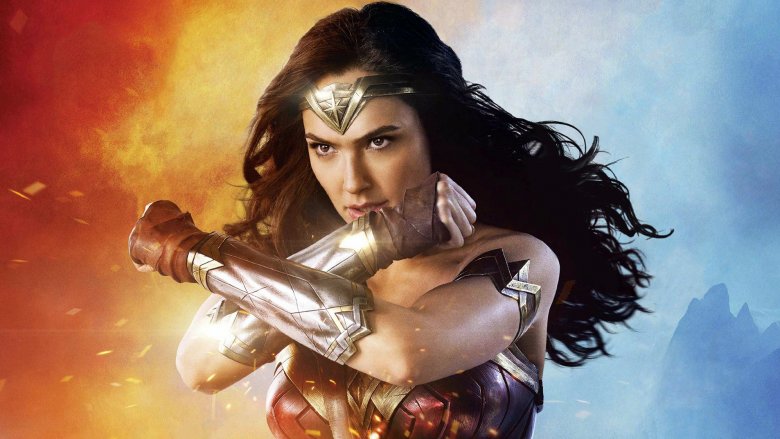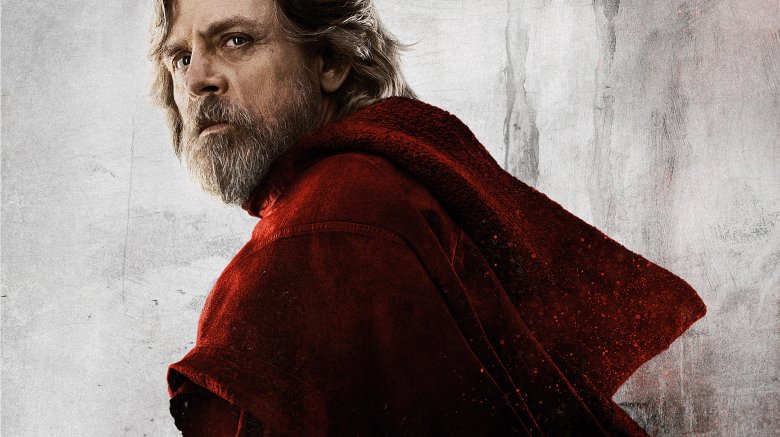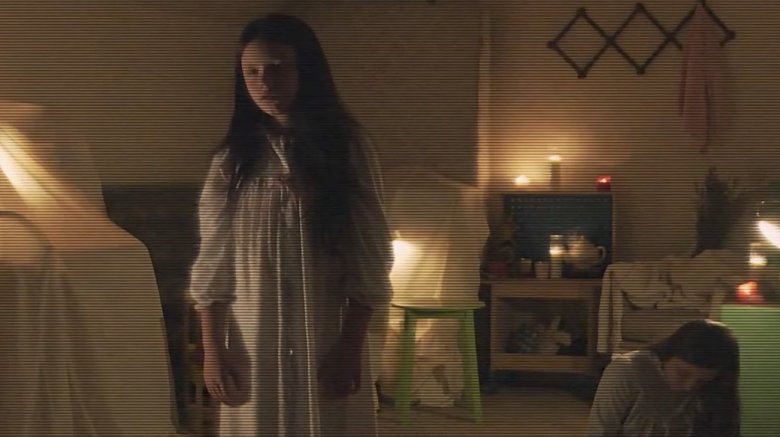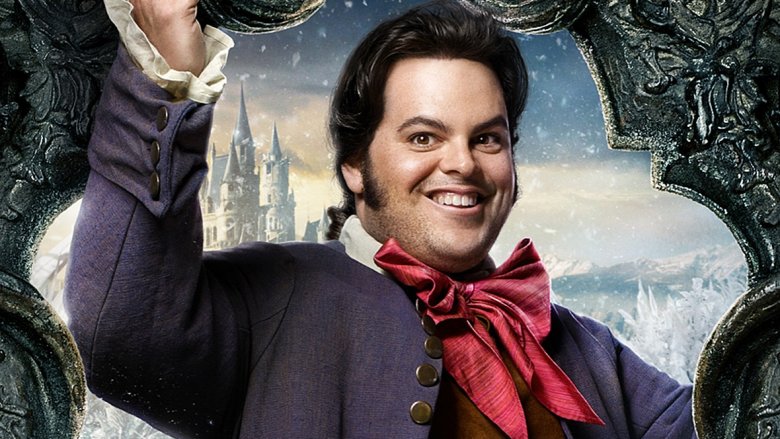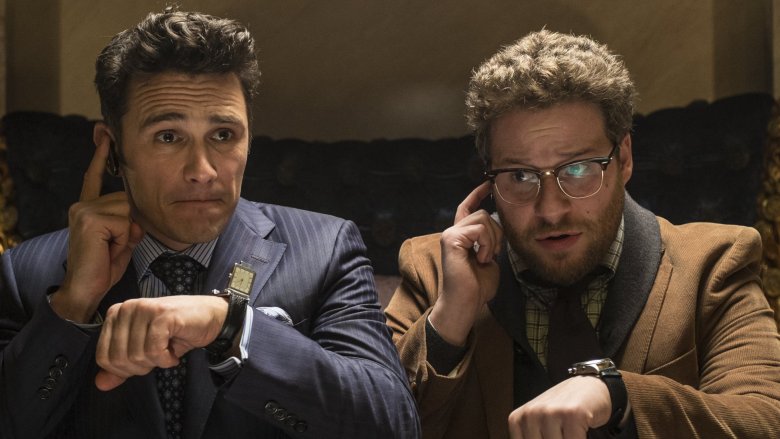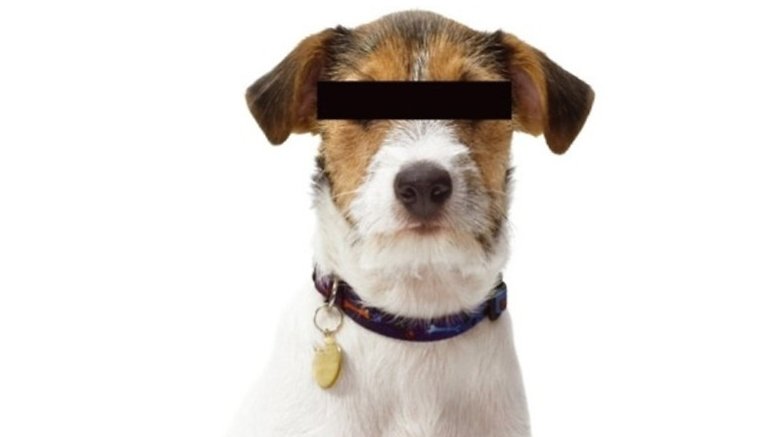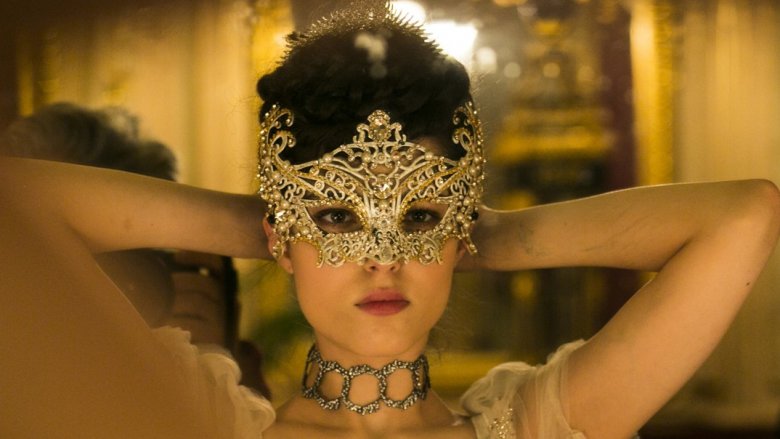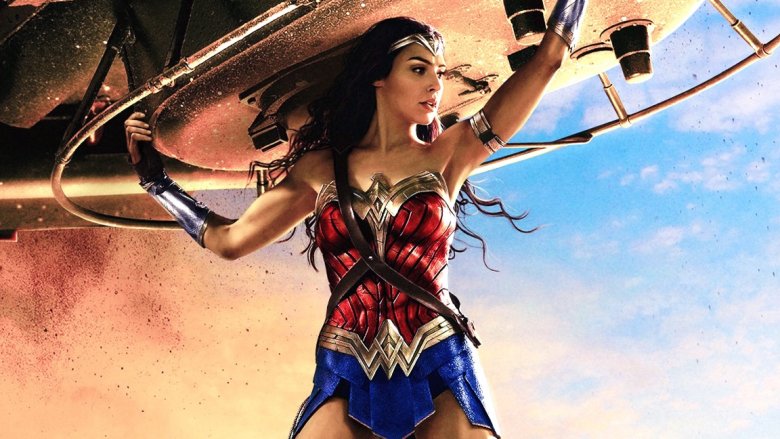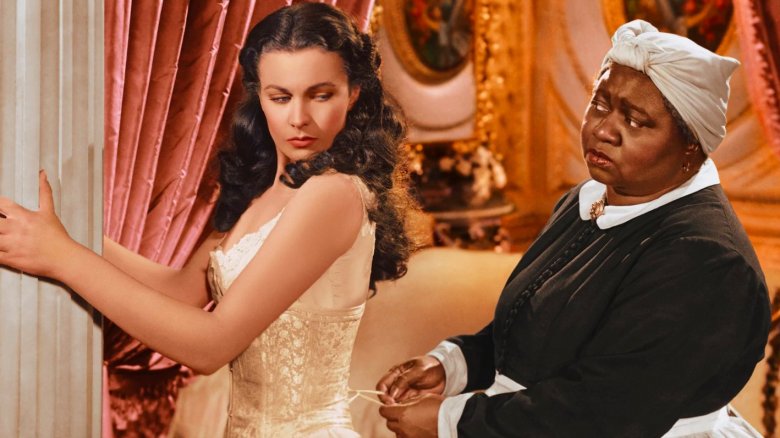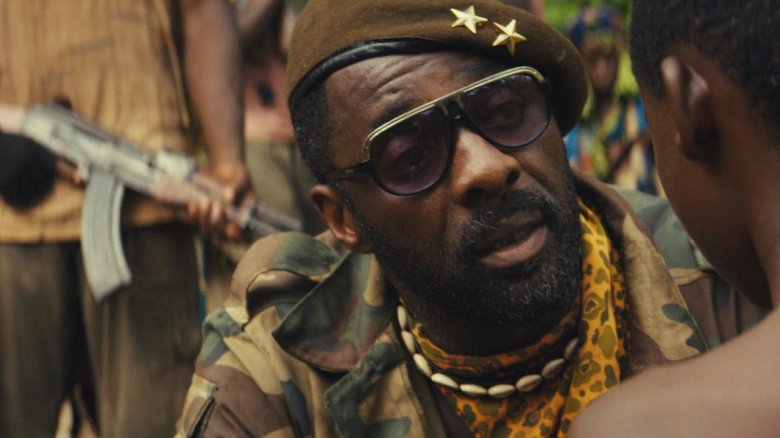Movies Banned From Theaters For Ridiculous Reasons
Just about everybody loves the ritual of going to the movies. Grab some popcorn and watch a story unfold on a big screen—along the way, you'll laugh, you'll cry, and you'll cheer. Movie theaters exist to provide this service to the general public...but there are some mainstream movies that, for a variety of sometimes ridiculous reasons, their owners flat-out refuse to screen. From money squabbles to culture clashes, here's what kept the following films from playing at a theater near you.
Star Wars: The Last Jedi
No movie is a guaranteed box office success—except for Star Wars. In 2015, Star Wars: The Force Awakens became the highest-grossing movie of all time in the U.S., and the follow-up, 2017's Star Wars: The Last Jedi was, to say the least, one of the most highly anticipated movies of the year. Still, some theater owners weren't willing to make room for it.
According to the Wall Street Journal, a number of screens—mainly located in small towns—refused to agree to Disney's steep demands for exhibitors, such as a claim on 65 percent of ticket sales revenue and a guarantee that The Last Jedi would play in a multiplex's biggest individual theater for at least a month. If a theater were to break those terms and Disney found out, that 65 percent cut jumped to 70 percent—all of which represents a substantial increase over the average percentage studios usually take, which is around 55 to 60 percent. For a one or two-screen theater, it's easy to understand why it might be easier to say no.
Paranormal Activity: The Ghost Dimension
If you're a really big fan of a movie or any of its stars, you might be motivated to head to the theater on opening day. Otherwise, you could probably wait less than three weeks to see it in the comfort of your own home, at the cost of about half of a movie ticket.
That financial reality is exactly why some movie theater chains balked at screening Paranormal Activity: The Ghost Dimension. In 2015, distributor Paramount Pictures planned to make the sixth film in the found-footage horror series available on streaming platforms just 17 days after its debut. Two of the three biggest chains, Regal Cinemas and Cinemark, refused to show it as a result—leaving the movie to open on a reduced 1,350 screens and bring in just $18 million at the domestic box office, roughly a 50 percent tumble from the franchise's previous installment.
Beauty and the Beast
In Disney's 1991 animated version of Beauty and the Beast, the arrogant and villainous Gaston is always accompanied by LeFou, his loyal sidekick. In the 2017 live-action remake, LeFou (Josh Gad) remained hopelessly devoted to Gaston (Luke Evans), but with a few new details that flesh out the character. For example, director Bill Condon told Attitude magazine before the film's release that LeFou would be openly gay—and at the center of the first "exclusively gay moment" in a Disney film.
That simply wouldn't do for the operators of the Henagar Drive-In in Henegar, Alabama. In a since-deleted Facebook post, management wrote, "We will not be showing Beauty and the Beast at the Henagar Drive-In when it comes out. When companies continually force their views on us we need to take a stand. We all make choices and I am making mine. For those that do not know Beauty and the Beast is 'premiering' their first homosexual character."
The Interview
The Interview was the most ambitious and audacious movie yet from writing team Seth Rogen and Evan Goldberg, also responsible for Superbad, Pineapple Express, and This Is the End. Rogen and James Franco played a TV producer and a TV talk show host, respectively, recruited by the U.S. government to travel to North Korea and assassinate "Glorious Leader" Kim Jong-un (Randall Park). Not surprisingly, the North Korean government wasn't happy, and hackers broke into distributor Sony's computer networks and then threatened to physically attack any American movie theater that screened The Interview.
While the Department of Homeland Security didn't think there were any credible threats, they were scary enough for Regal Cinemas, Cinemark, Cineplex, AMC, Bow Tie Cinemas, Carmike, Southern Theatres, B&B Theatres, ArcLight Cinemas, MJR Digital Cinemas, and Wehrenberg Theatres to cancel or delay plans to show The Interview. Seeing as that meant almost nobody in the U.S. would mess with what would otherwise have been a major movie, Sony ultimately released the film directly to video-on-demand services.
One for the Money
Katherine Heigl left her breakout role on Grey's Anatomy in 2010 and made the leap to film, starring in a long string of romantic comedies and light dramas like the 2012 crime comedy One for the Money. Sadly, a lot of Heiglmaniacs in the Midwest didn't get the chance to see the movie on the big screen. Marcus Theatres runs more than 50 movie complexes in Illinois, Iowa, Wisconsin, and a few other states, and they didn't screen Heigl's turn as a plucky bail bonds worker because the chain's executives were reportedly sour on a deal between studio Lionsgate and Groupon. Ironically, One for the Money ended up making less money because of a promotion that made tickets cost not very much money.
The Aristocrats
Sure, The Aristocrats is filthy—the 2006 documentary that tracks the history of, and variations on, what's probably the dirtiest joke of all time—but it consists almost entirely of cameras trained on stand-up comedians as they tell their own version of the old gag.
There's no violence or sexuality depicted, merely wall-to-wall profanity. (It's all right there in the movie's tagline: "No nudity. No violence. Unspeakable obscenity.") But that was enough for the AMC theater chain to refuse to show it—The Aristocrats was an "unrated" movie, and execs said it failed their routine individual evaluation for unrated releases.
Matilda
There isn't a movie theater chain in the country so joyless that they passed on the 1996 adaptation of Roald Dahl's kiddie classic starring Mara Wilson. This is a different Matilda—a 2017 Russian-made period drama about a torrid romance in the 1890s between Tsar Nicholas II and a ballet dancer named Mathilde Kschessinska.
While that sounds like perfectly agreeable arthouse fare, it was an extremely controversial film topic. Nicholas and the rest of his family were executed by Bolshevik revolutionaries in 1918, and he's recognized as a martyr in the Russian Orthodox Church. Some strict adherents so objected to a movie about a venerated man having an affair that they threatened arson against theaters that screened it. After the outrage, and a man who packed a car with explosive gas canisters and parked it in front of a movie theater in the city of Yekaterinburg, Cinema Park and Formula Kino, Russia's largest chain at 75 theaters, decided to not show Matilda. The company's general director, Roman Linin, told reporters, "The security of our viewers remains a priority for us."
Wonder Woman
The big-screen adaptation of Wonder Woman thrilled, delighted, and inspired millions around the globe...but not in Lebanon. While the movie thrust star Gal Gadot onto the Hollywood A-list, Lebanese people couldn't see it because Gadot is from Israel. Lebanon and Israel are officially at war, and Lebanese law bans residents from having contact with Israelis or using Israeli products, which meant Wonder Woman had to go. Lebanon's minister of the interior issued an official ban in May 2017, and theaters around the country complied.
Gone With the Wind
It's based on Margaret Mitchell's Pulitzer Prize-winning novel, which takes place before, during, and after the Civil War, and its depiction of the slavery-era American South—not to mention slaves—can feel a bit dated, if not outright problematic, to modern-day audiences. In August of 2017, The Orpheum theater in Memphis screened Gone With the Wind and received so many complaints about the film afterward that it canceled a 2018 screening. "As an organization whose stated mission is to 'entertain, educate, and enlighten the communities it serves,'" read management's official statement, "the Orpheum cannot show a film that is insensitive to a large segment of its local population."
Beasts of No Nation
Netflix gets a lot of attention for its original series, but it produces plenty of movies too—and in 2015, the streaming service made a big splash by releasing the critically acclaimed feature Beasts of No Nation. Directed by Cary Fukunaga, who helmed the entirety of True Detective's first season, the harrowing drama about African child soldiers boasts a Golden Globe-nominated performance from Idris Elba.
What was the problem? Well, Netflix released the movie simultaneously in theaters and on its streaming platform, and traditionally, studios and distributors observe a 90-day "window" between a film's theatrical release and its debut on home video, because it gives theaters a chance to earn as much money at the box office as possible. Having Beasts of No Nation available at home right away would almost definitely cut into theaters' revenues, which fueled a protest by four of the country's biggest theater organizations. AMC, Regal, Cinemark, and Carmike all banded together to boycott Beasts of No Nation, drastically reducing the number of screens available to the feature.
